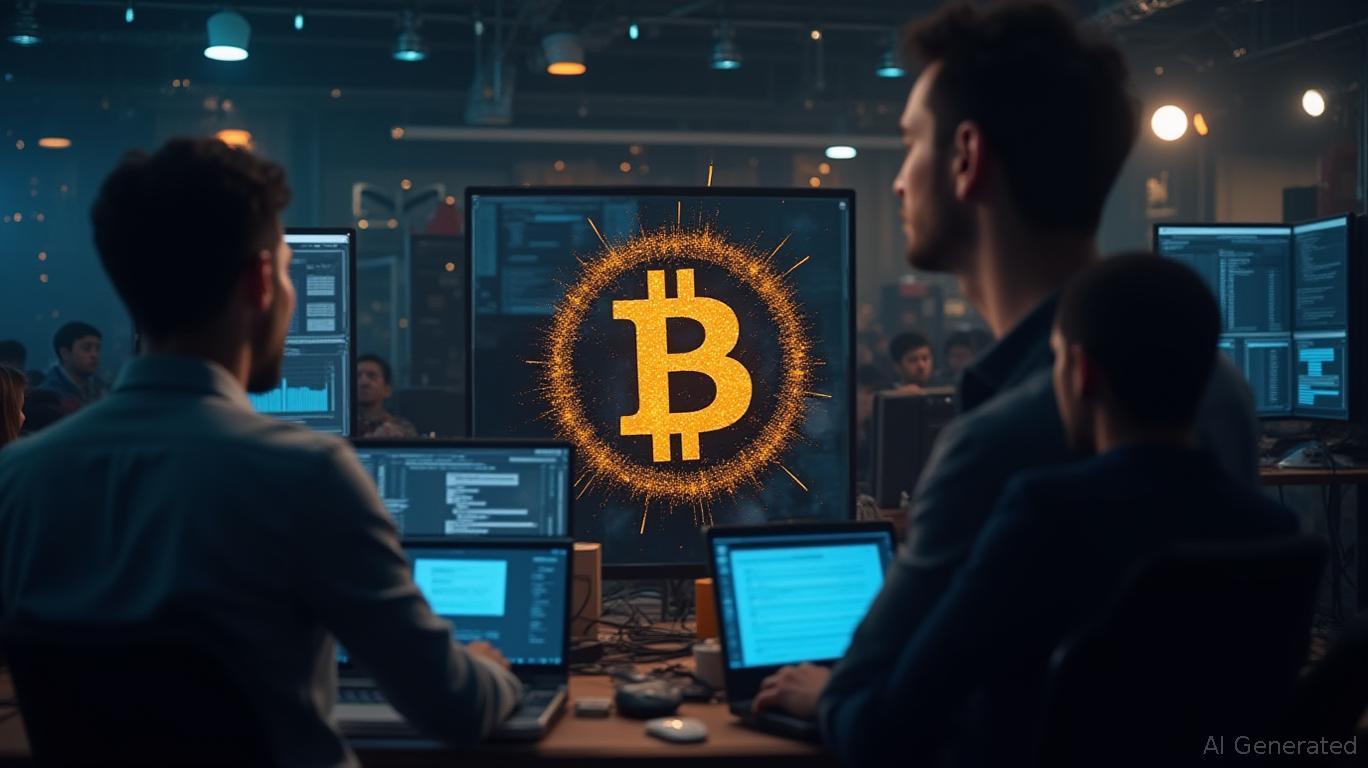Bitcoin’s Fundamental Dilemma: Balancing Spam Prevention and the Threat of Censorship
- Bitcoin developer Luke Dashjr denies proposing a hard fork to create a multisig committee for retroactively altering blockchain data, including removing illicit content like CSAM via ZKPs. - The controversy highlights a divide between Bitcoin Knots (strict spam filters) and Core (permissive approach), with critics warning of censorship risks and regulatory capture. - Market volatility followed, as Bitcoin’s price dropped 2.2% post-leak, though no direct causal link was confirmed, reflecting fears of comp

Bitcoin Developer Faces Backlash Over Alleged Hard Fork Suggestion
Luke Dashjr, who maintains the
This dispute has reignited the ongoing rift between the Bitcoin Knots and Bitcoin Core communities. Knots enforces more rigorous rules to block non-financial data like Ordinals and Runes tokens, whereas Core developers generally allow such data [ 1 ]. The rumored hard fork, if realized, would create a unique process to remove data after confirmation, diverging from Bitcoin’s consensus mechanism, where reorganizations are rare and economically discouraged. Opponents warn that such a change could open the door to forced removals, politically motivated censorship, or regulatory overreach [ 2 ].
Industry responses have been sharply divided. Udi Wertheimer, co-founder of Taproot Wizards and the Ordinals project, dismissed the article as a “hit piece,” stressing that the leaked chats only explored theoretical ideas like ZKPs for filtering spam without splitting the network [ 1 ]. Blockstream CEO Adam Back cautioned that the proposal “bypassed slippery slope concerns” and “went straight to implementing censorship technology” previously criticized as a threat to Bitcoin’s unchangeable nature [ 2 ]. Abra’s founder Bill Barhydt compared the situation to a “second Bitcoin war,” warning that rumors of a hard fork could be used as a “bait-and-switch” by a minority group [ 2 ].
The controversy has also led to market turbulence. Bitcoin’s value dropped 2.2% to $109,000 within a day of the leak, and was down 5.5% over the previous week [ 1 ]. Although no direct cause has been confirmed, the price decline coincided with growing uncertainty. The leaked messages, which mentioned a “buried-state modification” to flag questionable transactions, heightened concerns that Bitcoin’s resistance to censorship—a fundamental aspect of its design—might be at risk [ 2 ].
Dashjr has not released any technical documentation or rollout plan for the supposed mechanism, leaving the discussion based on speculation. The lack of an official proposal has led some to doubt the authenticity of the leak, with The Rage’s reporter L0la L33tz noting the dangers of “destroying Bitcoin over JPEGs” [ 2 ]. Meanwhile, some developers are urging restraint, suggesting that protocol changes should be considered over centuries to prevent destabilizing the network [ 2 ].
This episode highlights the deep philosophical divide over Bitcoin’s governance: should the protocol remain a neutral platform for settlement, or should developers actively block non-monetary uses? Supporters of Dashjr argue that tighter spam controls preserve Bitcoin’s financial purity, while critics see any centralized oversight as fundamentally opposed to its decentralized nature [ 1 ]. As the debate continues, the community is split on whether the proposed hard fork is a necessary step forward or a fundamental threat to Bitcoin’s foundational values.
Disclaimer: The content of this article solely reflects the author's opinion and does not represent the platform in any capacity. This article is not intended to serve as a reference for making investment decisions.
You may also like
Astar 2.0’s Influence on AI Infrastructure and Cloud Computing Sectors: Evaluating Changes in AI Hardware Requirements and Emerging Investment Prospects
- Astar 2.0's blockchain innovations in cross-chain interoperability and scalability aim to reshape AI infrastructure by optimizing data flow and reducing latency. - Partnerships with Sony and Toyota demonstrate blockchain-enabled AI logistics applications, enhancing transparency and operational efficiency in supply chains. - Deflationary tokenomics and institutional adoption strategies position Astar to capitalize on AI hardware growth, with analysts projecting $0.80–$1.20 ASTR valuation by 2030. - The pl

ZK Technology Experiences Rapid Growth in 2025: Could This Mark a Turning Point for Web3?
- ZK technology is driving Web3 mainstream adoption in 2025 with scalability breakthroughs and institutional adoption. - ZK rollups now exceed $3.3B TVL, proving scalability without compromising security through 43,000 TPS performance. - 35+ institutions including Goldman Sachs and Sony have integrated ZK solutions for confidential transactions and NFT verification. - Developer participation surged 230% in 2025, with ZK Layer 2 market projected to reach $90B by 2031 at 60.7% CAGR. - Investors show cautious

ETH Breaks Falling Wedge, Massive Whale Activity Signals Potential Rally

SEC Clears DTCC to Begin Large-Scale Tokenization of US Securities in 2026
